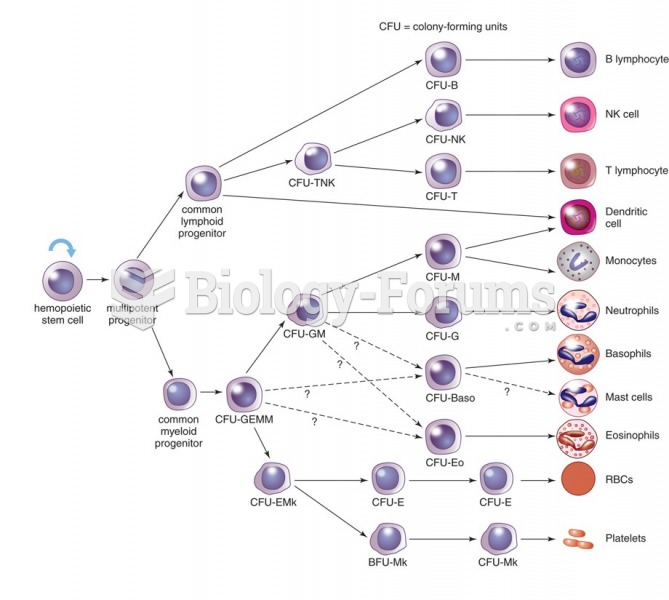|
|
|
A seasonal flu vaccine is the best way to reduce the chances you will get seasonal influenza and spread it to others.
Patients who cannot swallow may receive nutrition via a parenteral route—usually, a catheter is inserted through the chest into a large vein going into the heart.
Malaria was not eliminated in the United States until 1951. The term eliminated means that no new cases arise in a country for 3 years.
The human body's pharmacokinetics are quite varied. Our hair holds onto drugs longer than our urine, blood, or saliva. For example, alcohol can be detected in the hair for up to 90 days after it was consumed. The same is true for marijuana, cocaine, ecstasy, heroin, methamphetamine, and nicotine.
In 1835 it was discovered that a disease of silkworms known as muscardine could be transferred from one silkworm to another, and was caused by a fungus.
 Distribution of glaciers in North America (a) in the late twentieth century, and (b) 18,000 years ag
Distribution of glaciers in North America (a) in the late twentieth century, and (b) 18,000 years ag
 On March 25, 1911, as scores of young factory girls leaped to their deaths from the eighth, ninth, a
On March 25, 1911, as scores of young factory girls leaped to their deaths from the eighth, ninth, a





